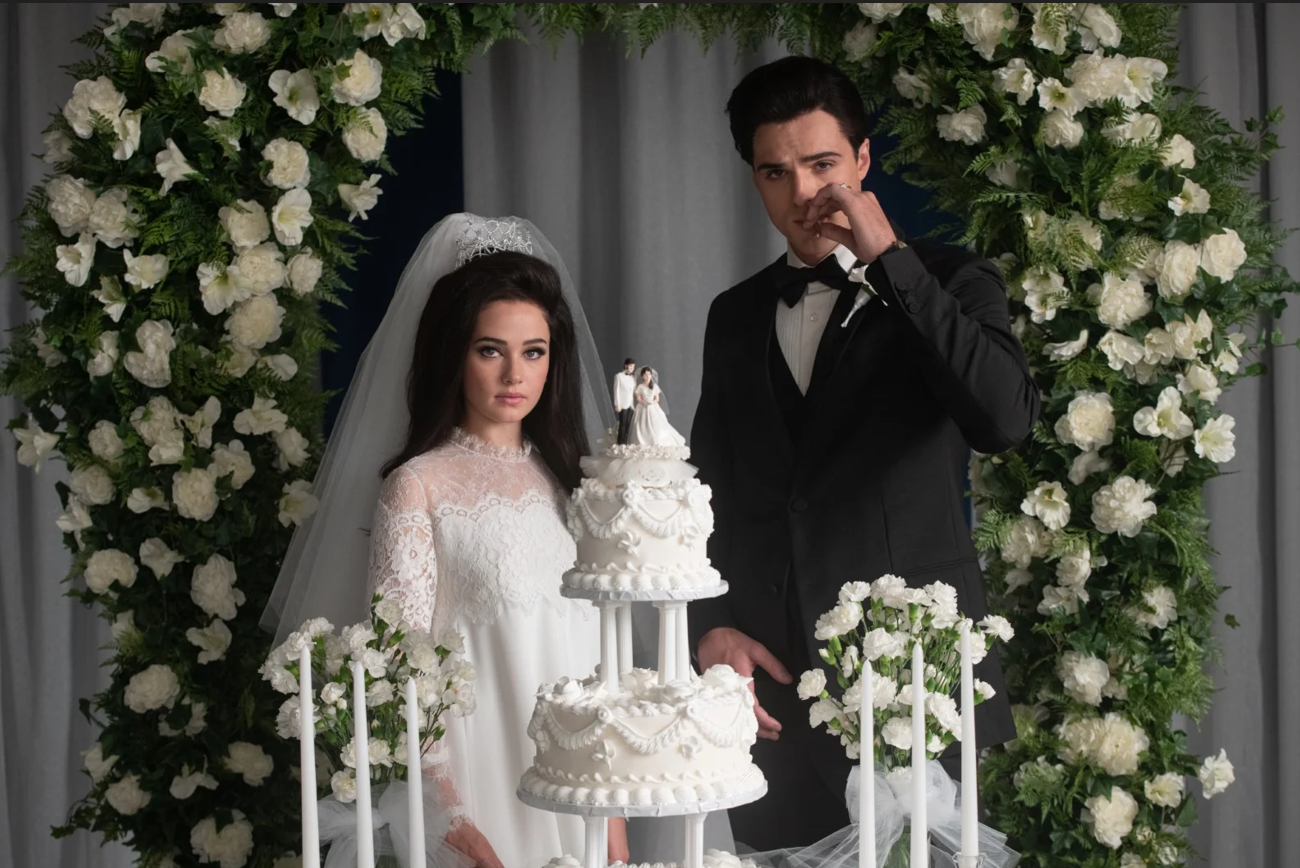Priscilla (2024) - Stylish, but poorly executed biopic paints the other side in the Presley marriage
Credit: allocine.fr
From Sofia Coppola’s long line of work centred around encaged, restricted and isolated women, stunted by suburbia or the responsibilities of their time, emerges a representation of an equally encaged, restricted and isolated woman to add to the fresco. This one is aesthetically rich, taking great pleasure in the little details, and versatile, sporting the debonair look of the early 60s through to the mid 70s. But, with a poorly paced timeline that leaves all of its “empty” scenes – the quintessential walk around the vacant house so typical of Coppola’s work – feeling, well, empty, it packs less of an emotional punch than its subject deserves.
The woman in question is, of course, Priscilla Presley who, from 1967 to 1973, was married to Elvis, and upon his death, turned his residence Graceland into one of the top tourist attractions in the United States. Based upon her memoir Elvis and Me, and executive produced by Priscilla herself, Coppola’s latest features close up shots of winged eyeliner, jovial enough montages of pool parties and nights out at theme parks, and a great deal of attention accorded to outfits, including a rather unpleasant scene in which Priscilla models dresses under the scrutiny of Elvis and his obnoxious gang.
It's fun enough when it needs to be, and effective enough in depicting what was a rather unsavoury relationship despite its tender moments. But, as life with the King begins to turn sour, something is left amiss, and at the heart of this very intrusive biopic, Priscilla – played by a very agile Cailee Spaeny – never completely comes through in her truest form. Spaeny adapts to each age – fourteen, when she first met Elvis, through to her pregnancy and inevitable divorce – with grace and dexterity (at one point, she is almost unrecognisable after reverting back to her natural hair colour, and considering she is 25, I was sold on her as a fourteen year-old), but it is Priscilla’s core that remains unchanged and, strangely, unremarkable. It is impossible, for instance, to distinguish a shy and naïve “hello” upon their first meeting from the penultimate scene, fourteen years down the line. Almost frustratingly impenetrable, Priscilla is mirrored, rather surprisingly, by the King himself. Played somewhat elusively by Jacob Elordi, there, again, doesn’t seem to be much material to work with – in a biopic in which he is supposed to loom, but only in the background, Elvis comes across as nothing short of ordinary, brooding in a corner over here, drinking a little too much over there. The shadowy figure upon which Priscilla relies, then gradually starts to fear, the mystery of the genius, the small glimpses between pacing the house while he is away and yearning for him when he leaves for America, are peculiarly lacking, leaving nothing to long for, and certainly no understanding of the man he was. Even scenes of violence come across as rehearsed and ill-timed, and besides sequences in which Priscilla pines for her lost love as a teenager, there is very little time accorded to her onscreen to reflect, to separate herself from him before the audience as she grows older. Perhaps it is, then, that aesthetic comes at the cost of tone – for, at the peak of Priscilla, there is, in the end, nothing much left beside the memory of a rather beautifully drawn cat’s eye.
